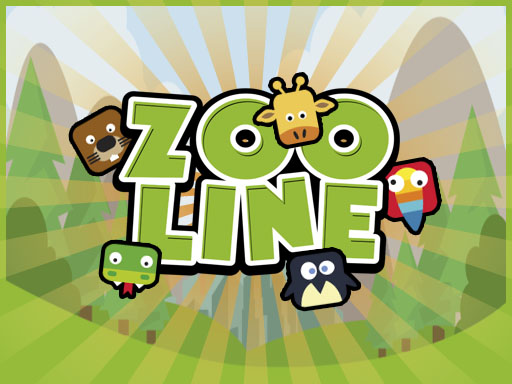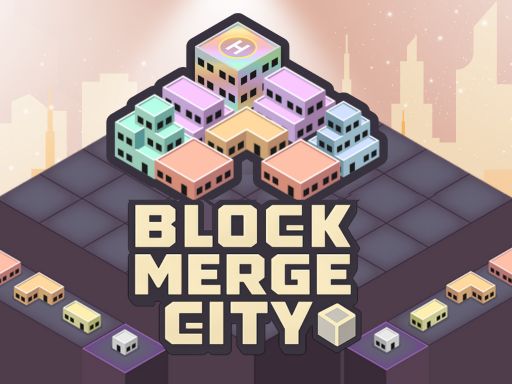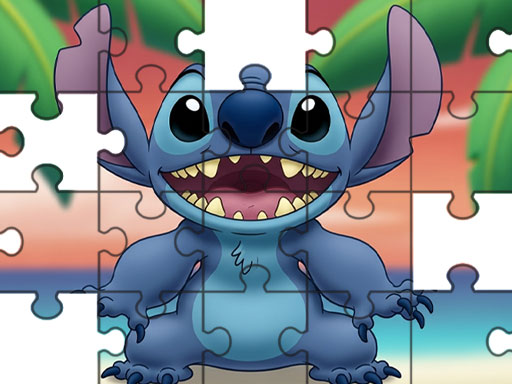Ricochet Squad Logic
About Ricochet Squad Logic
Okay, so you know how sometimes you stumble across a game, and it just *clicks*? Like, everything about it, from the moment you boot it up, just resonates with that specific part of your brain that lives for clever challenges and pure, unadulterated fun? Well, listen, I’ve found one. And honestly, I’ve been practically glued to my screen ever since. It’s called Ricochet Squad Logic, and man, it’s just… it’s brilliant.
I know, I know, the name might not immediately scream "epic adventure," but trust me, it’s got this understated genius that just draws you in. What I love about games like this is how they take a seemingly simple premise and just twist it into something incredibly engaging. You’re not just playing a game; you’re conducting a tiny, precision-guided ballet of destruction and survival. There's something magical about how it manages to be both laid-back and intensely focused at the same time.
Imagine this: you’re not some lone hero with a sword or a gun. No, you’re a commander. A *general*, really, but for a very specific, very adorable, and surprisingly deadly army: your Bullet Army. Yeah, you heard me right. Little, shiny, perfectly spherical bullets, each one a tiny soldier, and you’re leading them. And where are you leading them? Across these wild, intricate parkour platforms that are just *begging* to be conquered.
The first time I saw it, I was like, "Okay, a casual puzzle game, sure, I've played a million of those." But then you actually *get into it*, and you realize it’s so much more than that. It’s this incredible blend of strategy and reflexes, where you’re constantly thinking three steps ahead, but also reacting in a split second to something totally unexpected. It’s that perfect sweet spot that, in my experience, the best moments in gaming always come from – that delicious tension between careful planning and instinctive action. It makes you lean forward in your chair, eyes glued to the screen, ready to make that split-second decision.
You start off with a small squad, maybe just a handful of these little bullet guys, and the goal is simple: get them from point A to point B. But the path? Oh, the path is never simple. It’s a winding, twisting, often perilous journey across these floating platforms, some of which are moving, some disappearing, some rotating. And that’s where the "Ricochet" part of the name really comes alive. You’re not just running them in a straight line. You’re guiding them, often by bouncing them off walls, using the environment to your advantage. There’s something so incredibly satisfying about lining up a shot, watching your squad ricochet off a series of angled surfaces, and land perfectly on a tiny, distant platform. You can almost feel the weight of the controller in your hands, the slight tremor of anticipation as your finger hovers over the control, waiting for that precise moment to unleash your metallic horde.
But here’s the kicker, the thing that elevates it beyond just a simple physics puzzler: you need to grow your army. As you navigate these levels, you’ll see these glowing pickups – more bullets. And every time you collect one, your squad gets bigger. You feel this immediate rush, this surge of power, because a bigger squad means more resilience, more options. What’s fascinating is how this changes your approach. With a small team, you’re cautious, precise, trying to shepherd every single one. But as your army swells, you start to feel a bit more… confident. You can afford to lose a few to a poorly timed jump or a rogue obstacle, but you still want to save as many as possible. It’s this constant balancing act, this micro-management of your adorable, metallic soldiers.
And the obstacles, man, they’re just devious. You’ll be cruising along, feeling like a tactical genius, and then *bam*, a massive spinning cutter blade appears, sweeping across your path. Or these huge, rhythmic hammers that smash down, threatening to flatten your entire squad into shiny little pancakes. You have to time your movements perfectly. You’ll find yourself holding your breath, nudging your squad forward just as a hammer lifts, then darting them across before it slams down again. It’s like a deadly dance, and you’re the choreographer. The brilliant thing about this is that it’s not just about raw speed; it’s about understanding the patterns, anticipating the movements, and then executing your plan with surgical precision. Your heart rate actually picks up during these intense moments.
I remember this one level, early on, where I had to guide my squad across a series of platforms that were constantly sinking and rising. On top of that, there were these lasers that would sweep across, vaporizing any bullet that touched them. I must have failed that level a dozen times, watching my little bullet guys just… disappear. It was frustrating, sure, but it was that good kind of frustration, the kind that makes victory so much sweeter. I kept thinking, "There *has* to be a way." And then it clicked. I realized I could use a small, elevated platform to block the laser for a split second, creating a tiny window for the rest of my squad to pass through. The moment I pulled it off, watching the last bullet safely reach the end, I actually cheered. That feeling, that absolute surge of satisfaction when a complex strategy finally clicks into place, that’s what keeps me coming back to games like this. It’s that "aha!" moment, that perfect symphony of thought and action.
What’s interesting is how the game scales. Early levels are a great way to get a feel for the mechanics, but then it starts throwing curveballs. You’ll encounter levels where the platforms are made of ice, so your bullets slide uncontrollably unless you hit a friction pad. Or levels where you have to split your squad, sending one group to activate a switch while the other navigates a separate, equally perilous path. This makes me wonder about the developers’ thought process – how they manage to keep introducing new mechanics without making it feel overwhelming. It’s always just enough newness to keep you engaged, but not so much that you feel lost. It’s a masterclass in progressive difficulty and feature introduction.
The visual style, too, is just perfect for it. It’s clean, vibrant, and incredibly clear, which is crucial when you’re dealing with split-second decisions and precise movements. You can always clearly see the trajectory, the danger zones, and the safe paths. And the sound design? Subtle, but effective. The satisfying *clink* of collecting a new bullet, the ominous *whirr* of a cutter blade, the heavy *thud* of a hammer – it all adds to the immersion without being distracting. You can almost hear the tiny metallic footsteps of your squad as they roll across the platforms, a constant, comforting reminder of their presence.
Honestly, I’ve always been drawn to games that reward clever thinking and precise execution. There’s something magical about taking a chaotic situation and imposing your will upon it, turning a seemingly impossible challenge into a perfectly orchestrated success. Ricochet Squad Logic absolutely nails that feeling. It’s not about brute force; it’s about finesse, about understanding the physics of the world, and about mastering your own timing.
You know that feeling when you're so absorbed in a game that you lose track of time? That's exactly what happens here. I'll sit down for "just one more level," and then suddenly an hour has passed, and I'm still trying to figure out how to navigate a particularly tricky gauntlet of rotating spikes and disappearing floor tiles. The game has this incredible flow to it, where each success propels you forward, eager to see what new environmental puzzle or deadly trap the next stage will throw at you. It fuels your curiosity, making you want to explore every nook and cranny of its cleverly designed world.
And it’s not just about survival, either. There are often hidden paths, little detours that lead to extra bullet pickups, or sometimes even secret objectives. It adds this layer of exploration and reward for those who are truly observant and willing to take a calculated risk. Do you play it safe, just trying to get to the end with a minimal squad? Or do you push your luck, aiming for that tantalizing cluster of extra bullets, knowing it might mean risking a few of your existing team? That’s the kind of decision-making that keeps you engaged, that makes every playthrough feel dynamic.
The real magic happens when you start to internalize the game’s logic. You stop seeing individual obstacles and start seeing the entire level as one big, interconnected machine. You anticipate the movement of a platform, knowing exactly when a cutter will pass, and you plan your squad’s entire journey in one fluid mental sequence. It’s like learning a new language, or mastering a complex musical instrument. And when you finally execute that perfect run, guiding your massive bullet army through a series of death traps without losing a single soldier, it’s just… pure exhilaration. You can almost feel the tension in your shoulders release, replaced by a wave of triumphant satisfaction. That moment of accomplishment is genuinely addictive.
It’s the kind of game that, despite its casual puzzle label, offers a surprising amount of depth and replayability. You’ll want to go back and perfect those earlier levels, trying to get a flawless run, to collect every single bullet. And honestly, it’s just so much fun to watch your little bullet army grow from a meager handful into this unstoppable, rolling tide. Just wait until you encounter the levels where you have to navigate your squad through a maze of teleportation gates – that’s when things *really* get wild, forcing you to think in dimensions you hadn't considered before.
So yeah, Ricochet Squad Logic. It’s not just a game; it’s an experience. It’s that perfect blend of challenge, strategy, and pure, unadulterated gaming joy. If you’re looking for something that will genuinely spark that curious, problem-solving part of your brain, and give you that incredible feeling of mastery, you absolutely, unequivocally have to check this out. I’m telling you, you won’t regret it. You’ll be hooked, just like I am.
I know, I know, the name might not immediately scream "epic adventure," but trust me, it’s got this understated genius that just draws you in. What I love about games like this is how they take a seemingly simple premise and just twist it into something incredibly engaging. You’re not just playing a game; you’re conducting a tiny, precision-guided ballet of destruction and survival. There's something magical about how it manages to be both laid-back and intensely focused at the same time.
Imagine this: you’re not some lone hero with a sword or a gun. No, you’re a commander. A *general*, really, but for a very specific, very adorable, and surprisingly deadly army: your Bullet Army. Yeah, you heard me right. Little, shiny, perfectly spherical bullets, each one a tiny soldier, and you’re leading them. And where are you leading them? Across these wild, intricate parkour platforms that are just *begging* to be conquered.
The first time I saw it, I was like, "Okay, a casual puzzle game, sure, I've played a million of those." But then you actually *get into it*, and you realize it’s so much more than that. It’s this incredible blend of strategy and reflexes, where you’re constantly thinking three steps ahead, but also reacting in a split second to something totally unexpected. It’s that perfect sweet spot that, in my experience, the best moments in gaming always come from – that delicious tension between careful planning and instinctive action. It makes you lean forward in your chair, eyes glued to the screen, ready to make that split-second decision.
You start off with a small squad, maybe just a handful of these little bullet guys, and the goal is simple: get them from point A to point B. But the path? Oh, the path is never simple. It’s a winding, twisting, often perilous journey across these floating platforms, some of which are moving, some disappearing, some rotating. And that’s where the "Ricochet" part of the name really comes alive. You’re not just running them in a straight line. You’re guiding them, often by bouncing them off walls, using the environment to your advantage. There’s something so incredibly satisfying about lining up a shot, watching your squad ricochet off a series of angled surfaces, and land perfectly on a tiny, distant platform. You can almost feel the weight of the controller in your hands, the slight tremor of anticipation as your finger hovers over the control, waiting for that precise moment to unleash your metallic horde.
But here’s the kicker, the thing that elevates it beyond just a simple physics puzzler: you need to grow your army. As you navigate these levels, you’ll see these glowing pickups – more bullets. And every time you collect one, your squad gets bigger. You feel this immediate rush, this surge of power, because a bigger squad means more resilience, more options. What’s fascinating is how this changes your approach. With a small team, you’re cautious, precise, trying to shepherd every single one. But as your army swells, you start to feel a bit more… confident. You can afford to lose a few to a poorly timed jump or a rogue obstacle, but you still want to save as many as possible. It’s this constant balancing act, this micro-management of your adorable, metallic soldiers.
And the obstacles, man, they’re just devious. You’ll be cruising along, feeling like a tactical genius, and then *bam*, a massive spinning cutter blade appears, sweeping across your path. Or these huge, rhythmic hammers that smash down, threatening to flatten your entire squad into shiny little pancakes. You have to time your movements perfectly. You’ll find yourself holding your breath, nudging your squad forward just as a hammer lifts, then darting them across before it slams down again. It’s like a deadly dance, and you’re the choreographer. The brilliant thing about this is that it’s not just about raw speed; it’s about understanding the patterns, anticipating the movements, and then executing your plan with surgical precision. Your heart rate actually picks up during these intense moments.
I remember this one level, early on, where I had to guide my squad across a series of platforms that were constantly sinking and rising. On top of that, there were these lasers that would sweep across, vaporizing any bullet that touched them. I must have failed that level a dozen times, watching my little bullet guys just… disappear. It was frustrating, sure, but it was that good kind of frustration, the kind that makes victory so much sweeter. I kept thinking, "There *has* to be a way." And then it clicked. I realized I could use a small, elevated platform to block the laser for a split second, creating a tiny window for the rest of my squad to pass through. The moment I pulled it off, watching the last bullet safely reach the end, I actually cheered. That feeling, that absolute surge of satisfaction when a complex strategy finally clicks into place, that’s what keeps me coming back to games like this. It’s that "aha!" moment, that perfect symphony of thought and action.
What’s interesting is how the game scales. Early levels are a great way to get a feel for the mechanics, but then it starts throwing curveballs. You’ll encounter levels where the platforms are made of ice, so your bullets slide uncontrollably unless you hit a friction pad. Or levels where you have to split your squad, sending one group to activate a switch while the other navigates a separate, equally perilous path. This makes me wonder about the developers’ thought process – how they manage to keep introducing new mechanics without making it feel overwhelming. It’s always just enough newness to keep you engaged, but not so much that you feel lost. It’s a masterclass in progressive difficulty and feature introduction.
The visual style, too, is just perfect for it. It’s clean, vibrant, and incredibly clear, which is crucial when you’re dealing with split-second decisions and precise movements. You can always clearly see the trajectory, the danger zones, and the safe paths. And the sound design? Subtle, but effective. The satisfying *clink* of collecting a new bullet, the ominous *whirr* of a cutter blade, the heavy *thud* of a hammer – it all adds to the immersion without being distracting. You can almost hear the tiny metallic footsteps of your squad as they roll across the platforms, a constant, comforting reminder of their presence.
Honestly, I’ve always been drawn to games that reward clever thinking and precise execution. There’s something magical about taking a chaotic situation and imposing your will upon it, turning a seemingly impossible challenge into a perfectly orchestrated success. Ricochet Squad Logic absolutely nails that feeling. It’s not about brute force; it’s about finesse, about understanding the physics of the world, and about mastering your own timing.
You know that feeling when you're so absorbed in a game that you lose track of time? That's exactly what happens here. I'll sit down for "just one more level," and then suddenly an hour has passed, and I'm still trying to figure out how to navigate a particularly tricky gauntlet of rotating spikes and disappearing floor tiles. The game has this incredible flow to it, where each success propels you forward, eager to see what new environmental puzzle or deadly trap the next stage will throw at you. It fuels your curiosity, making you want to explore every nook and cranny of its cleverly designed world.
And it’s not just about survival, either. There are often hidden paths, little detours that lead to extra bullet pickups, or sometimes even secret objectives. It adds this layer of exploration and reward for those who are truly observant and willing to take a calculated risk. Do you play it safe, just trying to get to the end with a minimal squad? Or do you push your luck, aiming for that tantalizing cluster of extra bullets, knowing it might mean risking a few of your existing team? That’s the kind of decision-making that keeps you engaged, that makes every playthrough feel dynamic.
The real magic happens when you start to internalize the game’s logic. You stop seeing individual obstacles and start seeing the entire level as one big, interconnected machine. You anticipate the movement of a platform, knowing exactly when a cutter will pass, and you plan your squad’s entire journey in one fluid mental sequence. It’s like learning a new language, or mastering a complex musical instrument. And when you finally execute that perfect run, guiding your massive bullet army through a series of death traps without losing a single soldier, it’s just… pure exhilaration. You can almost feel the tension in your shoulders release, replaced by a wave of triumphant satisfaction. That moment of accomplishment is genuinely addictive.
It’s the kind of game that, despite its casual puzzle label, offers a surprising amount of depth and replayability. You’ll want to go back and perfect those earlier levels, trying to get a flawless run, to collect every single bullet. And honestly, it’s just so much fun to watch your little bullet army grow from a meager handful into this unstoppable, rolling tide. Just wait until you encounter the levels where you have to navigate your squad through a maze of teleportation gates – that’s when things *really* get wild, forcing you to think in dimensions you hadn't considered before.
So yeah, Ricochet Squad Logic. It’s not just a game; it’s an experience. It’s that perfect blend of challenge, strategy, and pure, unadulterated gaming joy. If you’re looking for something that will genuinely spark that curious, problem-solving part of your brain, and give you that incredible feeling of mastery, you absolutely, unequivocally have to check this out. I’m telling you, you won’t regret it. You’ll be hooked, just like I am.
Enjoy playing Ricochet Squad Logic online for free on Latoosm. This Puzzle game offers amazing gameplay and stunning graphics. No downloads required, play directly in your browser!
How to Play
Mouse click or tap to play





Comments
This game is awesome! I love the graphics and gameplay.
One of the best games I've played recently. Highly recommended!